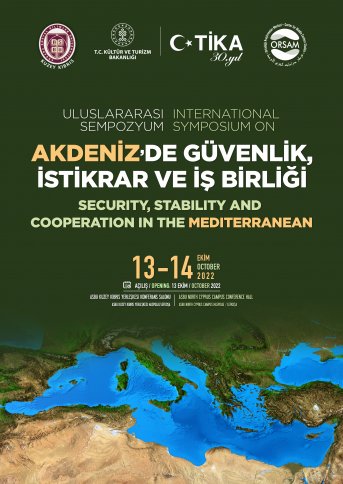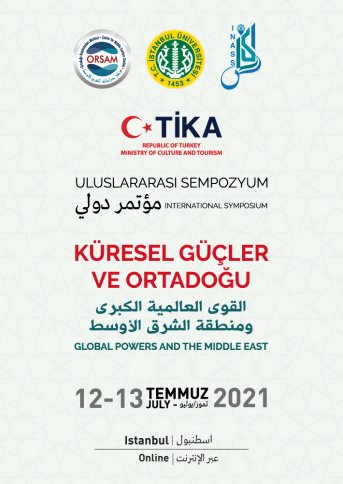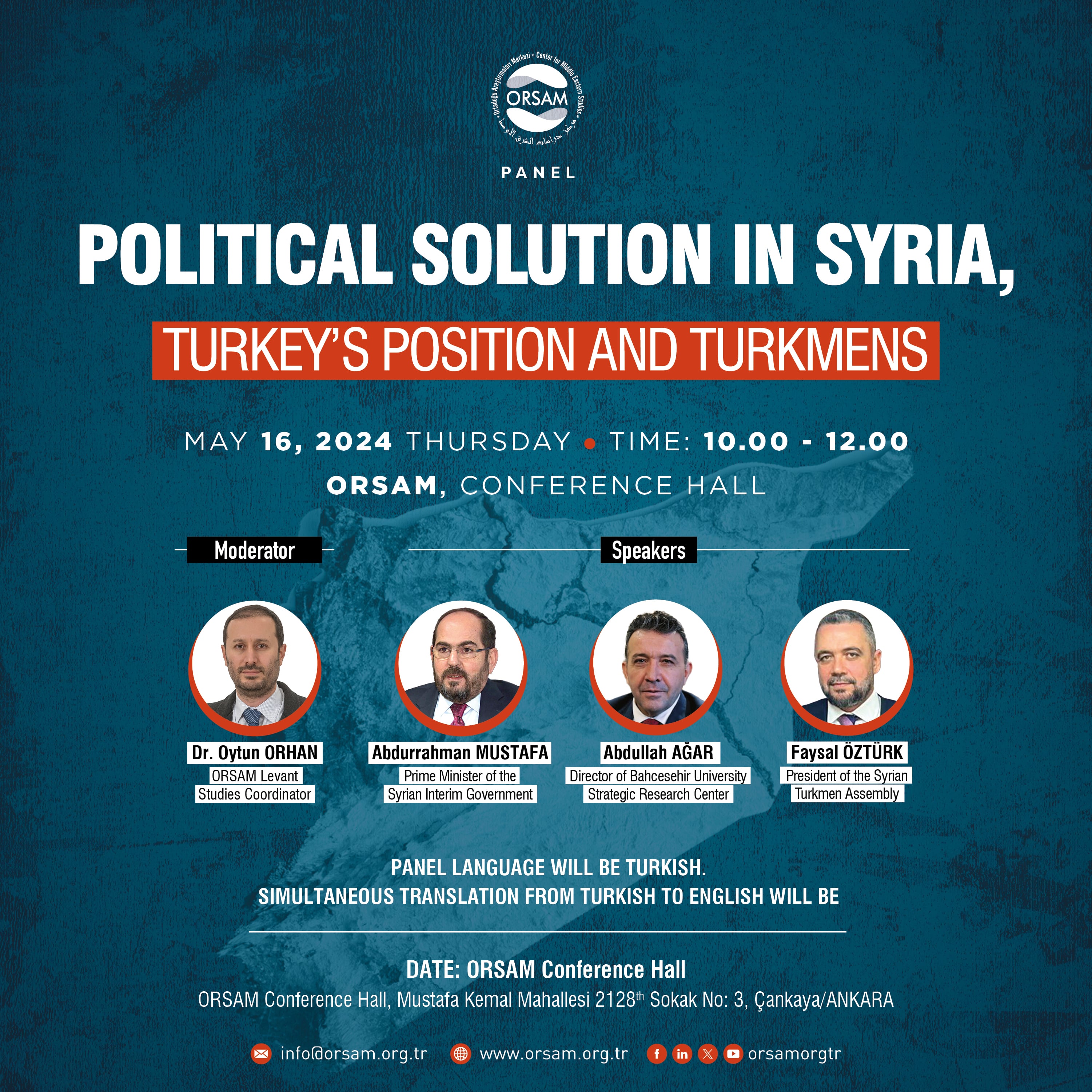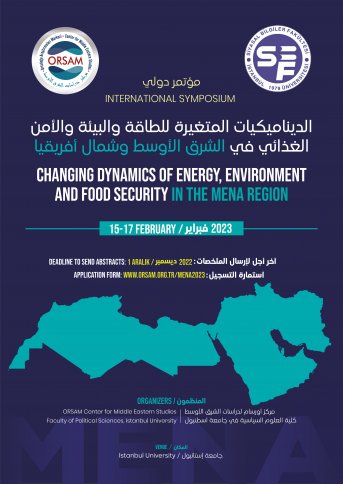
International Symposium on the Changing Dynamics of Middle East and North African Energy, Environment and Food Security
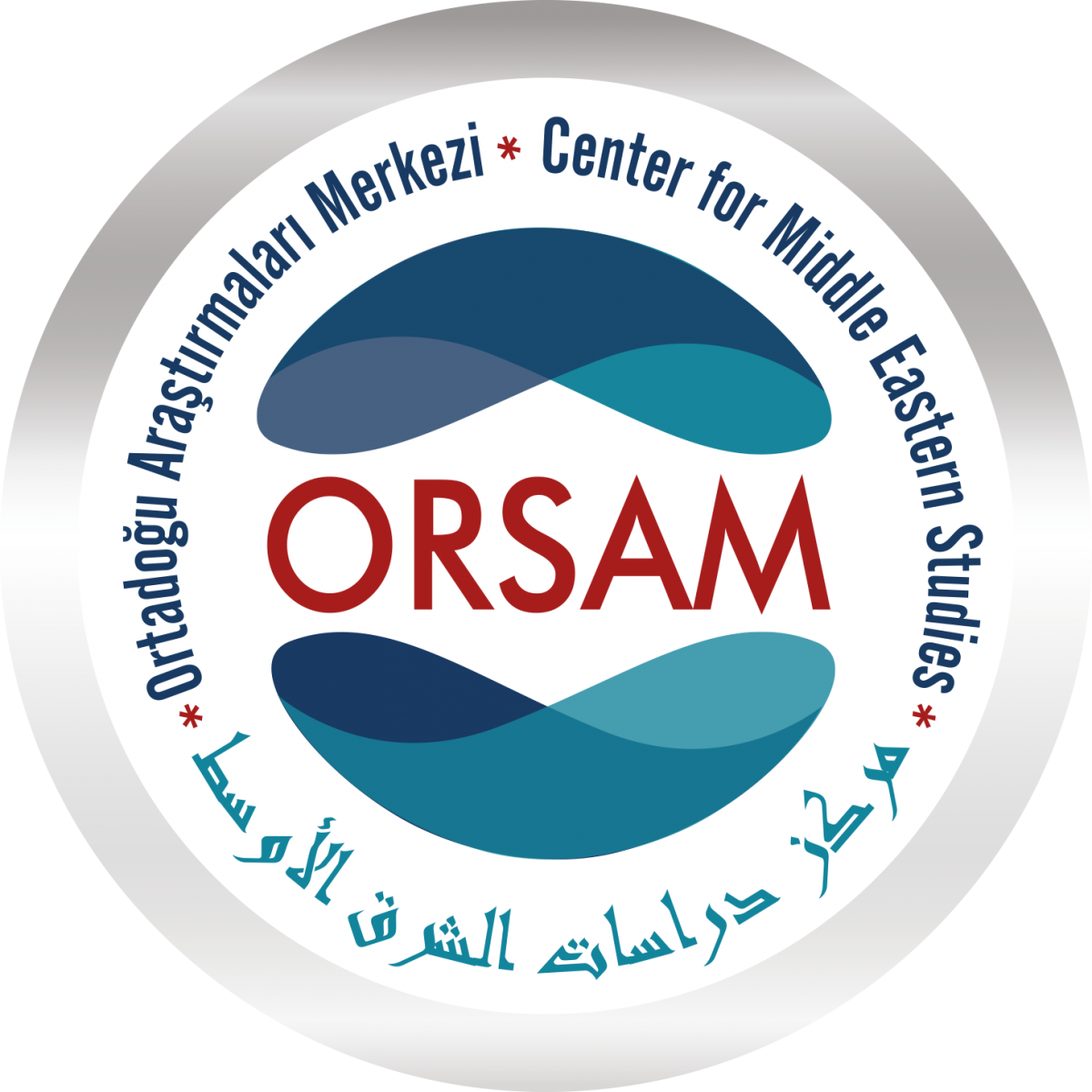
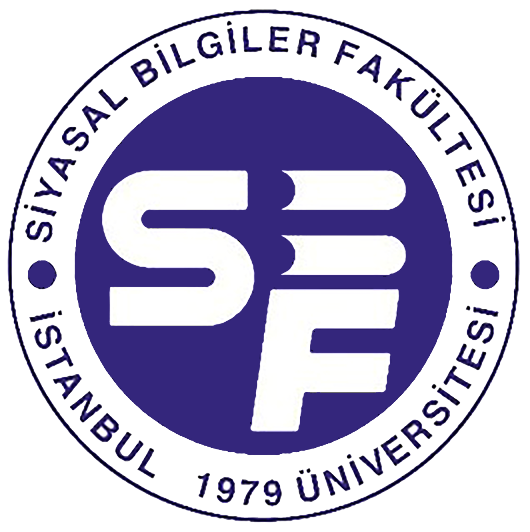
International Symposium on the Changing Dynamics of Middle East and North African Energy, Environment and Food Security
15-17 February 2023, Istanbul
Rationale of the Symposium: Energy has become the backbone of social and economic life in modern history, as well as a basic component for national development and prosperity. Its production, distribution, and consumption are the main focus of global economies. Moreover, energy issues significantly impact the nature of international relations. Similarly, environmental issues (e.g., global warming) are affecting societies globally with droughts and floods, causing migration and conflicts. As a result of the environmental problems and international politics, food security has become more urgent in recent months, especially after the Russia-Ukraine War.
In regional and international geopolitics, there is an interesting interplay among energy, the environment and food security. Energy -producing countries face problems and challenges different from consuming countries, while this interdependence does not always guarantee a fair distribution of benefits. On the environmental level, developed countries have polluted the world more than less developed ones. However, the latter suffer more from the negative effects of environmental degradation. An analogous situation is observed in food security as wealthy countries have easier access to food than poor ones, proven clearly through the food crises that have emerged as an unintended consequence of the conflict between Russia and Ukraine.
The Russian military invasion of Ukraine in February 2022 made energy and food security a more pressing issue on the global level. The invasion triggered a superpower struggle involving three of four global powers (i.e., the US, Europe, and Russia) and the fourth one (China) closely watching the developments. Both sides of the conflict try to use their leverage on production and consumption to advance their agenda on energy, namely with regards to natural gas and oil. The conflict over energy between the West and Russia will likely last for several years. Conflict and competition over energy risk the economies and social well-being of many countries, especially Arab countries that rely heavily on importing their food.
As soon as the Russia-Ukraine War broke out, a jump in global oil and gas prices occurred, due to the West’s determination to abandon Russian energy imports as a punitive move against Russia, which is the second largest oil exporter after Saudi Arabia. Global oil and gas prices rose sharply due to a state of anxiety and uncertainty about the stability of the global energy market. With the Russia-Ukraine War, the Middle East and North African regions became more important in the political sprint between Russia and the West as well as food and energy security. As Arab oil and gas reserves become critical as an alternative energy provider. Arab countries that are not producing oil face double economic hardships because of rising food and oil prices.
In connection with environmental degradation and desertification, the MENA region is facing the problem of food security as the main importer of Ukrainian and Russian grains. The problem is eased with Turkish mediation between the warring parties, but it is far from resolved due to Western embargoes, security and logistical issues. The region is one of the biggest consumers and importers of wheat. Besides, the region has been suffering from drought in recent years, affecting wheat and other crops. Egypt is the biggest importer of wheat in the world, and 50% and 30% of its wheat imports come from Russia and Ukraine, respectively.
Some MENA countries can overcome this economic challenge due to the strength of their economies and an abundance of funds, while others facing serious challenges threaten their food security along with their national security and political stability vis-à-vis the rising likelihood of massive protests, migration, and terrorism that find a fertile ground because of economic hardships. This new energy, environmental, and security issues also affect Turkiye to a lesser extent. In cooperation with the UN, Turkiye played an important role in overcoming the grain crisis between Russia and Ukraine. The Istanbul Agreement allowed the export of Ukraine’s grain from its ports on the Black Sea without being threatened by Russian forces.
In light of these developments, the Center of Middle East Studies (ORSAM), in cooperation with Istanbul University, is holding an international symposium under the title “Changing Dynamics of Energy, Environmental, and Food Security in the MENA Region” to discuss the political, economic, security and social aspects of the changing geopolitics in different countries from a regional and international perspective. The symposium aims at gathering scholars and experts to present research papers and academic studies dealing with the related themes of the symposium’s conceptual framework that revolve around the MENA region.
| PLEASE CLICK THE LINK BELOW FOR APPLICATION |
| https://forms.gle/U1Xn3LQ5tJ6XztoV8 |
Symposium Themes (Not Exclusive):
- Agricultural sector in the MENA region
- Climate change
- Culture and environment
- Desertification in the MENA region
- Disaster management
- Energy analysis and modeling
- Energy management
- Environmental monitoring
- Environmental problems in the MENA region
- Environmental protection
- Food security and political stability
- Geopolitics of energy and food
- Global competition over energy
- Green technology
- Groundwater and aquifer issues
- International conflicts and energy security
- New technologies for environment
- Oil & gas pipeline projects in the MENA region
- Oil and gas economies in the MENA region
- Regional and global energy security
- Regional energy cooperation
- Renewable energy in the MENA region
- Regional competition over energy
- Socio-economic aspect of energy
- Sustainable development
- Sustainable energy management
- The political economy of energy
- The Russia-Ukraine War & energy in the MENA region
- Water management
- Water resources in the MENA region
Guidelines for participation
- Only original papers must be submitted.
- Abstracts must be between 250 and 300 words with 4 keywords.
- Full papers must be between 5,000-7,000 words.
- Papers can be written and presented in Turkish, Arabic, and English.
- For Arabic abstracts, participants must also send the English version of the abstract as an attachment to the registration form.
- For Arabic papers, 16 font sizes should be used for main titles, 14 font sizes for subtitles and the main piece should be written by using 12 font sizes.
- You may access the registration form and send your abstracts via Google Forms mentioned above.
- For any questions or further correspondence, please contact the given address. (mena2023@orsam.org.tr)
Logistics:
- The conference fee is 100 USD for professors and 50 USD for graduate students.
- Participants are responsible for any travel expenses.
- Organizers have a limited budget to help the scholars with financial difficulty in transportation or accommodation.
Important dates
- Deadline to submit abstracts: 01 December 2022
- Announcement of accepted abstracts: 15 December 2022
- Submission date of full texts: 01 February 2023
- Symposium dates: 15-17 February 2023
Program Flow:
|
| Morning | Afternoon |
| February 15th |
| Opening & Sessions |
| February 16th | Sessions | Sessions |
| February 17th | Sessions | Sessions & Closing |
Directors of the Symposium
- Prof. Dr. Ahmet Uysal, ORSAM Director, Istanbul University
- Prof. Dr. Mahmut Ak, Rector of Istanbul University
Organizing Committee
- Coordinator: Prof. Dr. Ayşegül Komsuoğlu, Dean, Faculty of Political Sciences, Istanbul University
- Coordinator: Dr. Watheq al Sadoon, Coordinator of Arabic Studies, ORSAM Center
- Doç. Dr. İsmail Numan Telci, Sakarya Üniversitesi &ORSAM, Türkiye
- Dr. İsmail Sarı, AHBV Üniversitesi & ORSAM, Türkiye
- Dr. Göktuğ Sönmez, Necmettin Erbakan Üniversitesi & ORSAM, Türkiye
- Bilgay Duman, ORSAM, Türkiye
- Oytun Orhan, ORSAM, Türkiye
- Gökhan Ereli, ORSAM, Türkiye
- Nurbanu Akcan, ORSAM, Türkiye
- Talha Özmen, ORSAM, Türkiye
- C. Yavuz Öztürk, ORSAM, Türkiye
Symposium Advisory Committee
- Prof. Adem Esen, Istanbul University, Türkiye
- Prof. Akif Kireçci, Ankara Social Science University, Türkiye.
- Prof. Birol Akgün, Ankara Yıldırım Beyazıt University, Türkiye.
- Prof. Enver Arpa, Ankara Social Science University, Türkiye/Northern Cyprus
- Prof. Eyüp Artvinli, Eskişehir Osmangazi University, Türkiye.
- Prof. Faruk Taşçı, İstanbul Üniversitesi, Türkiye
- Prof. Fatih Emre Boran, Gazi University, Türkiye.
- Prof. Haluk Alkan, Istanbul University, Türkiye
- Prof. İbrahim Dinçer, Board Member of Turkish Energy, Nuclear and Mineral Research Agency (TENMAK), Türkiye.
- Prof. İdris Bostan, Istanbul University, Türkiye.
- Prof. Levent Aydın, Ankara Social Science University, Türkiye.
- Prof. Muhsin Kar, Ankara Yıldırım Beyazıt University, Türkiye
- Prof. Mustafa Bakhouch, University Mohamed Khider Biskra, Algeria.
- Prof. Mustafa Ebu el-Kasım, University of Tripoli, Libya.
- Prof. Muthanna Faeq Marei Al-Obaidi, University of Tikrit, Iraq.
- Prof. Nuri Tınaz, Marmara University
- Prof. Nurşin Ateşoğlu Güney, Turkish Presidency Advisor, Türkiye.
- Prof. Tayyar Arı, Uludağ University, Türkiye
- Prof. Youssef Ben Othman, Director of the Center for Economic and Social Studies and Research, Tunisia.
- Assoc. Prof. Robert Mason, Lancaster University, UK.
- Assoc. Prof. Rory Miller, Georgetown University, US.
- Dr. Elsadig Elfaqih, Sakarya University/ ORSAM, Türkiye
- Mr. Oğuzhan Akyener, Director of the Center for Turkish Energy Strategies and Policy Research (TESPAM), Türkiye.
Symposium Scientific Committee
- Prof. Abdullah Kızılcık, Istanbul University, Türkiye
- Prof. Ahmet Öztürk, Istanbul University, Türkiye
- Prof. Enver Arpa, Ankara Social Science University, Türkiye
- Prof. Haider Ali Hussain, Mustansiriya University, Iraq
- Prof. Hasan Duran, Istanbul University, Türkiye
- Prof. Namık Sinan Turan, Istanbul University, Türkiye
- Prof. Necmettin Kızılkaya, Istanbul University, Türkiye
- Prof. Özden Zeynep Oktav, İstanbul Medeniyet University, Türkiye
- Assoc. Prof. Hüseyin Mercan, Marmara University, Türkiye
- Assoc. Prof. Mustafa Gönerigök, Sakarya University, Türkiye
- Assoc. Prof. Serhan Afacan, Marmara University, Türkiye
- Asst. Prof. Abdul Razzaq Khalaf Al-Taie, University of Mosul, Iraq
- Asst. Prof. Abdel Nasser Al-Jassem, University of Aleppo - University of Mardin, Syria
- Asst. Prof. Ahmed Adnan Aziz Al-Mayali, College of Political Science, University of Baghdad, Iraq.
- Asst. Prof. Ahmed Saddam Abdul Sahib, University of Basra, Iraq.
- Asst. Prof. Ahmet Ege, Atılım University, Türkiye
- Asst. Prof. Hudssein Abdulhasan Moeh, University of Misan, Iraq.
- Asst. Prof. İzzet Arı, Ankara University of Social Sciences, Türkiye.
- Asst. Prof. Levent Yılmaz, Hacı Bayram Veli University, Türkiye.
- Asst. Prof. Majed Abdulaziz Alturki, Director of the Center for Media and Arab-Russian Studies, Saudi Arabia.
- Asst. Prof. Mithaq Khairallah Jalloud, University of Mosul, Iraq
- Asst. Prof. Muharrem Hilmi Özev, Istanbul University & ORSAM, Türkiye
- ِِِAsst. Prof. Talib Muhammad Karim, Al-Rafidain Center for Dialogue, Mustansiriya University, Iraq
- Dr. Ahmet Köroğlu, Istanbul University, Türkiye
- Dr. Al-Rashid Muhammad Ibrahim, University of Khartoum, Sudan
- Dr. Carole Nakhle, CEO of Crystol energy company, UK.
- Dr. Metin Ünver, Istanbul University, Türkiye
- Dr. Nidal Salim, Director of the Global Institute for Water, Environment and Health (GIWEH), Switzerland
- Dr. Süleyman Güder, Istanbul University, Türkiye

